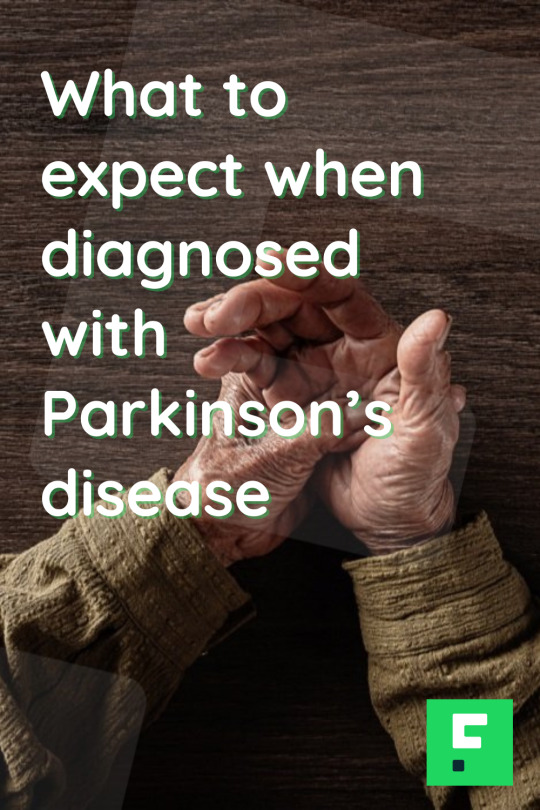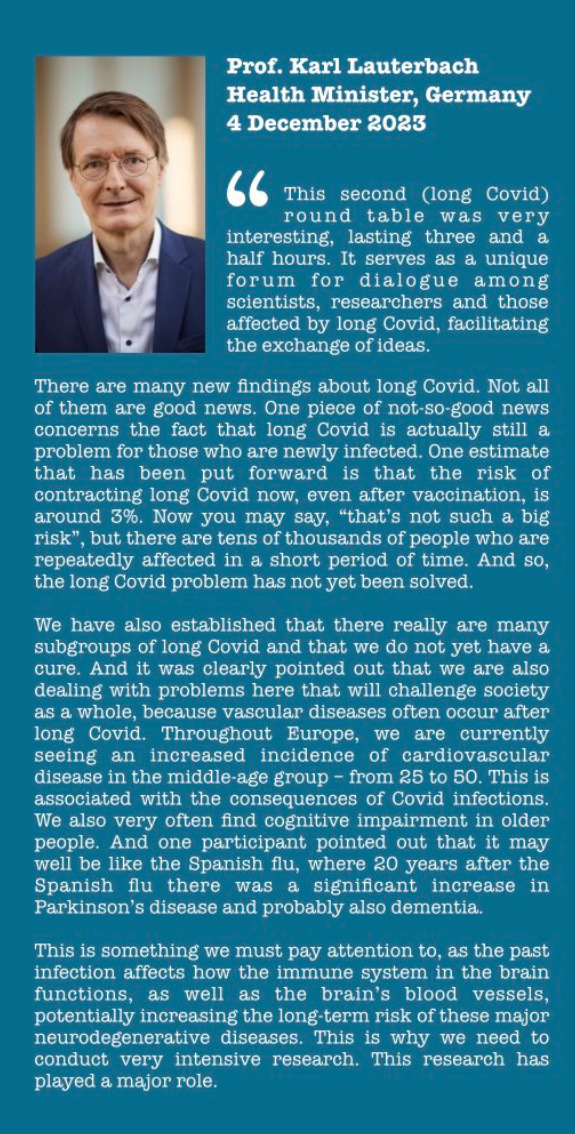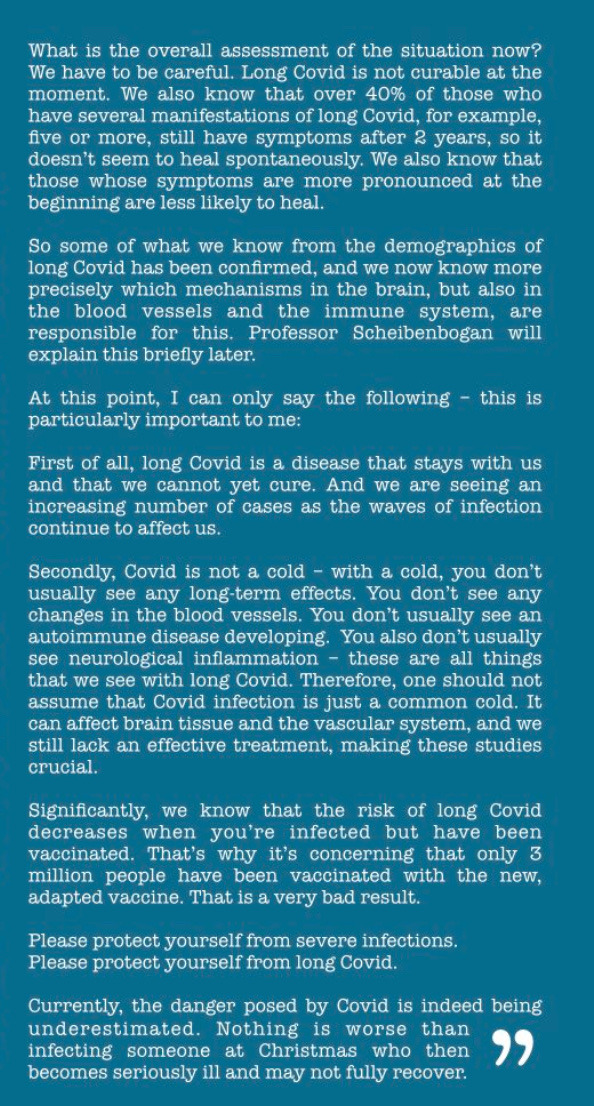#Parkinson’s disease symptoms
Text
#Parkinson’s treatment center in Patna#Best Psychiatrist in Patna#Bihar#foods to avoid with Parkinson’s disease#Parkinson cure found#Parkinson’s disease symptoms#Parkinson’s disease stages#What is the best treatment for Parkinson’s disease#Parkinson’s disease self-care
0 notes
Text
What to Expect When Diagnosed with Parkinson’s Disease

Parkinson’s disease occurs when cells in the brain that produce dopamine stop working or die, which affects coordination of body movements.
The early signs of Parkinson's disease can be subtle, including tremors, rigidity, slowness of movement, postural instability, and masked face.
Symptoms worsen over time, progressing through five stages. While there is currently no cure, treatment options include medication, physical therapy, occupational therapy, speech therapy, surgery, and lifestyle changes.
It's important to work closely with a healthcare professional to develop an individualized treatment plan that addresses specific symptoms and needs.
While Parkinson’s disease is a life-long condition, it usually takes time to get worse, and most people still have a normal life span with this condition.
3 notes
·
View notes
Text
Pass the Tylenol, Please
Happy February!
Do you ever feel like your body is a barometer or a weathervane? Can you feel the changing weather before it actually changes? We were in Chicago last weekend where the weather was rainy and in the 30’s most of the time. I definitely felt the rain coming before it actually arrived. Back home in LA, I was fine until last night as a front moved in with heavy rain all night until…

View On WordPress
#Kristine Meldrum#Living Well#living with Parkinson&039;s Disease#Parkinson&039;s and weather#Parkinson&039;s: How to Reduce Symptoms Through Exercise
0 notes
Text

Cat in the Hat:
"The German Health Minister gave an important update on the Covid situation yesterday.
I’ve written up the section of his speech from the video below for easy reading.
It’s immensely refreshing to see a government minister warning of the harms of Covid in such a transparent way."
https://x.com/_catinthehat/status/1732092683508678954


Prof. Karl Lauterbach
Health Minister, Germany
4 December 2023
"This second (long Covid) round table was very interesting, lasting three and a half hours. It serves as a unique forum for dialogue among scientists, researchers and those affected by long Covid, facilitating the exchange of ideas.
There are many new findings about long Covid. Not all of them are good news. One piece of not-so-good news concerns the fact that long Covid is actually still a problem for those who are newly infected. One estimate that has been put forward is that the risk of contracting long Covid now, even after vaccination, is around 3%. Now you may say, "that's not such a big risk" , but there are tens of thousands of people who are repeatedly affected in a short period of time. And so, the long Covid problem has not yet been solved.
We have also established that there really are many subgroups of long Covid and that we do not yet have a cure. And it was clearly pointed out that we are also dealing with problems here that will challenge society as a whole, because vascular diseases often occur after long Covid. Throughout Europe, we are currently seeing an increased incidence of cardiovascular disease in the middle-age group - from 25 to 50. This is associated with the consequences of Covid infections.
We also very often find cognitive impairment in older people. And one participant pointed out that it may well be like the Spanish flu, where 20 years after the Spanish flu there was a significant increase in Parkinson's disease and probably also dementia.
This is something we must pay attention to, as the past infection afiects how the immune system in the brain functions, as well as the brain's blood vessels, potentially increasing the long-term risk of these major neurodegenerative diseases. This is why we need to conduct very intensive research. This research has played a major role.
What is the overall assessment of the situation now?
We have to be careful. Long Covid is not curable at the moment. We also know that over 40% of those who have several manifestations of long Covid, for example, five or more, still have symptoms after 2 years, so it doesn't seem to heal spontaneously. We also know that those whose symptoms are more pronounced at the beginning are less likely to heal.
So some of what we know from the demographics of long Covid has been confirmed, and we now know more precisely which mechanisms in the brain, but also in the blood vessels and the immune system, are responsible for this. Professor Scheibenbogan will explain this briefly later.
At this point, I can only say the following - this is particularly important to me:
First of all, long Covid is a disease that stays with us and that we cannot yet cure. And we are seeing an increasing number of cases as the waves of infection continue to affect us.
Secondly, Covid is not a cold - with a cold, you don't usually see any long-term effects. You don't see any changes in the blood vessels. You don't usually see an autoimmune disease developing. You also don't usually see neurological inflammation - these are all things that we see with long Covid. Therefore, one should not assume that Covid infection is just a common cold. It can affect brain tissue and the vascular system, and we still lack an effective treatment, making these studies crucial.
Significantly, we know that the risk of long Covid decreases when you're infected but have been vaccinated. That's why it's concerning that only 3 million people have been vaccinated with the new, adapted vaccine. That is a very bad result.
Please protect yourself from severe infections.
Please protect yourself from long Covid.
Currently, the danger posed by Covid is indeed being underestimated. Nothing is worse than infecting someone at Christmas who then becomes seriously ill and may not fully recover."
Alt text is included in all images of this post.
#covid#not a cold#please wear a mask#pandemic#pandemic not over#long covid#Karl Lauterbach#Germany#German health minister
10K notes
·
View notes
Photo

At Rune Labs, we are always looking for ways to improve the lives of those affected by Parkinson's Disease. Our collaboration with Aspen Neuroscience is a major step in that direction, as we will be able to characterize symptom activity in PD more deeply than ever before. This information will help us to identify and recruit trial participants for our upcoming screening study.
1 note
·
View note
Text

Recent Advances in Treatment & Management of Parkinson’s Disease 2023 | Medanta
0 notes
Text
Understanding Parkinson Disease: Causes, Symptoms, and Treatment Options
I. Introduction
Parkinson’s disease is a neurological disorder that affects millions of people worldwide. It is a progressive condition that typically develops in older adults, although it can occur in younger individuals as well. The disease is named after James Parkinson, a British physician who first described the condition in 1817.
Parkinson’s disease is characterized by the gradual loss of…

View On WordPress
0 notes
Text
From the earliest days of the COVID-19 pandemic, scientists have raised concerns about the potential for long-term health problems linked to SARS-CoV-2 and warned repeated infections are likely to increase the risk.
An association between COVID and cardiovascular disease emerged quickly.
And now — almost exactly four years since the first case was discovered in Wuhan — a growing body of scientific research is cautiously linking the inflammation caused by a COVID infection to diseases like Alzheimer's and Parkinson's as well as autoimmune conditions from bowel disease to rheumatoid arthritis.
The virus has even been suggested to impact some pregnant women, associated with double the risk of premature delivery.
As the eighth COVID wave hits Australia, experts are taking notice.
...
When the first wave of COVID patients began reporting loss of smell and taste, Barnham's radar went up.
"Any time you see olfactory impairment it tells you that there's going to be neurological impact," he says. "Loss of smell is a cardinal, pre-clinical symptom of Parkinson's disease and it's been implicated in Alzheimer's disease as well."
The fact that COVID patients reported loss of smell not only during the active phase of the disease, but as a persistent symptom, suggested to Barnham that longer-term health consequences were likely. Loss of smell is associated with loss of brain volume.
3K notes
·
View notes
Text
anyway um. shoutout to disabled people who move their bodies in ways that are considered "wrong" or "abnormal" regardless of the cause or how it's classified. and this isn't limited to just ambulation.
paralysis. dystonia. gait abnormalities. people with muscle weakness and/or atrophy. people with brain damage. rotational differences. clubfoot. knocked knees. other limb and bodily differences. functional deformities that affect movement. tissue contracture. muscular dystrophies. spasticity. impaired proprioception, balance, and/or coordination. chronic pain. spinal disorders. dyspraxia/DCD. apraxia. ataxia. dystaxia. tourette's syndrome and other tic disorders. conversion symptoms. tremors. neurodegenerative disease. degenerative bone diseases. joint instability. myoclonus. parkinsonism. tardive dyskenisia. various other neurological problems.
...and the list goes on.
personally i feel a bit surreal when my body not doesn't always move in the ways i want it to because that straightforward connection that's there for abled people has been disrupted in a myriad of ways. but no one is gross, ugly, or scary for being unable to move their body in ways that society considers "normal" and "healthy." no one deserves to be gawked/stared at or treated like they're subhuman because of the way their body moves.
it's okay for us to exist.
#cripple punk#cripplepunk#cpunk#neurodivergence#disabled positivity#j#idk a better term for 'functional deformity' bc afaik deformity is a term w/ negative associations#affirmations
6K notes
·
View notes
Link

Parkinson's disease is a neurodegenerative condition characterized by motor deficits brought on by Lewy bodies and dopaminergic neuron loss in the substantia nigra. It mainly affects the upper and lower extremities, including facial muscles of the patient. Since Parkinson's disease has become more prevalent in recent years, more research is needed to create cutting-edge diagnostic procedures and treatment options to manage the condition. Central BioHub is a leading online human biospecimen marketplace offering thousands parakinson's disease biological samples immediately available for online procurement.Hurry up, order online.
0 notes
Text

#parkinson disease symptoms#hospitals#treatment center#Best neurologist in Jaipur#Neurologist in Jaipur#Neurology doctor in jaipur
1 note
·
View note
Text
Ending Parkinson’s once and for all - here’s how
A Parkinson’s diagnosis is the diagnosis from hell.
There’s no way of dressing it up. In the end, a decayed brain and a body we can't control is what awaits sufferers.
Worse, the drugs we use to handle the disease have increasingly nasty side-effects.
And their effects wear off over time. Just when the disease itself is getting worse…
It could hardly be a more cruel and hopeless outcome.
But for you it doesn’t have to be this way. There is a way out of the misery - and thousands have already taken it.
Because Parkinson’s Disease has known causes. And now there is a natural but powerful method to tackle those causes at their source.
Fight back. Get well again.
Click the link to learn more about this disease and to learn of a cure
1 note
·
View note
Text
Woman Who Can Smell Parkinson’s Helps Develop Test
Joy Milne, 72, from Perth, Scotland, has a hyper-sensitive sense of smell, allowing her to be able to smell Parkinson’s disease, which progressively damages parts of the brain over many years.
She discovered her unusual ability when her late husband, Les, developed a different odour when he was 33. She described it as a ‘musky aroma’. That was 12 years before he was diagnosed with Parkinson’s. Les, who was a doctor, was determined to research the link between odour and Parkinson’s, and contacted Dr Tilo Kunath at the University of Edinburgh, who paired up with Professor Perdita Barran to begin the research. They determined that the reasons for a change in the scent of a person suffering the disease is due to a chemical change of the skin oil (sebum).
In the preliminary sessions, Milne was asked to smell T-shirts worn by people who had Parkinson’s and those who did not. She successfully identified all of the Parkinson’s patients, but told researchers that a member of the control group, a non-Parkinson’s patient, did smell like the disease. 8 months later, they were diagnosed with the disease.
Now, a team of researchers at the University of Manchester have developed a simple test involving a cotton bud swiped down the back of the neck that can identify those with Parkinson’s. The molecules on the cotton bud can be examined using mass spectrometry, which helps the diagnosis. This is a huge leap forward, as there is no definitive test for Parkinson’s, and a diagnosis is based on symptoms and medical history. Currently, there are no cures for Parkinson’s, but an early diagnosis can help begin the treatment early, lessening the speed of the deterioration.
Milne says she can sometimes smell that a person has Parkinson’s when walking down the street, but has been told by medical ethicists that she cannot tell them. She is continuing to work with scientists to see if she can smell other diseases, like cancer or TB, and hopes that one day her talent can be considered normal diagnosis.
Source: the Guardian, written by PA Media
#science#science communication#scicomm#stem#science education#biology#health#medical science#parkinson's disease
9K notes
·
View notes
Text
Processing Feelings
I have to say I feel sad. I didn’t want to do much this weekend. I didn’t really want to talk much this weekend. I kind of wanted to hide away. My uncle’s death, my friend’s son, my friend’s sister, it all happened within two weeks of each other. So much sadness. I was so sad for my friends but my uncle hit me really hard. I didn’t want to talk about it the other blog because I wanted to say how…

View On WordPress
#breathing issues#chest muscle weakness#difficulties with ms#FESS swallow evaluation#grieving#living with MS#living with multiple sclerosis#MS#ms life#Ms progression#ms symptoms#Multiple sclerosis#Parkinson’s disease#pneumonia#swallowing issues#weakness
0 notes
Note
Thank you so much for your blog! It's so neatly organized, it's lovely to read. It takes a lot of commitment to do detail every post and still constantly update, and I'm very grateful for you <3
I was wondering if you could write tips+prompts for a paranoid character?
Thank you again 😺
Thank you for the kind words!! That means a lot :)
How to Write a Paranoid Character
-> sources: mind.org , betterhealth.vic.gov
Paranoia is the irrational and persistent feeling that people are "out to get you."
Things that Make Paranoia More Likely:
Having confusing or unsettling experiences or feelings that you can't easily explain.
If you are anxious or worried a lot or have low self-esteem and expect others to criticize or reject you.
If you tend to come to conclusions quickly, believe things very strongly, and don't easily change your mind.
If you are isolated.
If you have experienced trauma in the past.
Things that may Contribute to Paranoid Thoughts:
Life experiences. You are more likely to experience paranoid thoughts when you are in vulnerable, isolated or stressful situations that could lead to you feeling negative about yourself.
Experiences in your childhood may lead you to believe that the world is unsafe or make you mistrustful and suspicious of others. These experiences may also affect your self-esteem and the way you think as an adult.
If you experience anxiety, depression, or low self-esteem, you may be more likely to experience paranoid thoughts.
Paranoia is sometimes a symptom of certain physical illnesses such as Huntington's disease, Parkinson's disease, strokes, Alzheimer's disease and other forms of dementia. Hearing loss can also trigger paranoid thoughts in some people.
Lack of sleep can trigger feelings of insecurity and even unsettling feelings and hallucinations. Fears and worries may develop late at night.
Recreational drugs may trigger paranoia, such as cocaine, cannabis, alcohol, ecstasy, LSD, and amphetamines. This may happen particularly if you're already feeling low, anxious or experiencing other mental health problems.
Research has suggested that genes may affect whether you are more likely to develop paranoia.
Symptoms of Paranoia:
being easily offended
finding it difficult to trust others
not coping with any type of criticism
assigning harmful meanings to other people's remarks
being always on the defensive
being hostile, aggressive, and argumentative
not being able to compromise
finding it difficult (or impossible) to "forgive and forget"
assuming that people are talking ill of them behind their back
being overly suspicious
not being able to confide in anyone
finding relationships difficult
considering the world to be a place of constant threat
feeling persecuted by the world at large
believing in unfounded conspiracy theories
Writing Prompts for a Paranoid Person
-> feel free to edit and adjust pronouns as you see fit.
Everyone was against him. No one liked to see him succeed and so they were doing everything in their power to stop him.
People were talking about her behind her back. They would whisper as she walked by, and their laughter would echo in her ears as she got further from them.
"You never believe me!" They wailed, pointing an accusing finger at their friend. "You wouldn't get it! You don't know what it's like to be hated by everyone!"
He laid in bed, staring at the ceiling and wide awake. It was a nightly routine, at this point. He could never bring himself to close his eyes. There were too many things going on his head, too many things that only made him dread when morning came.
Everything was about to go so wrong so fast, and there was nothing she could do to stop it. The impending doom beat down on her shoulders, reminding her that she was not okay. She was not safe.
They couldn't stop fidgeting with their hands. It used to offer some form of comfort, but not anymore. How could it when the whole world is against you?
They were looking at him. They were watching his every move. He was being tracked. Studied. Something was going to happen. Something bad. Something he wasn't prepared for. What could he do to be prepared?
"You think I'm crazy, but I'm not! You'll see."
If you like what I do and want to support me, please consider buying me a coffee! I also offer editing services and other writing advice on my Ko-fi! Become a member to receive exclusive content, early access, and prioritized writing prompt requests.
#writing prompts#dialogue prompt#creative writing#writeblr#prompt list#ask box prompts#paranoia#how to write a paranoid character#how to write#writing tip#writing characters#writing help#writing advice
506 notes
·
View notes
Text
Parkinson Symptoms: The hidden sign of the disease in your posture
Parkinson Symptoms: The hidden sign of the disease in your posture
The main symptoms of Parkinson’s disease are tremors, slow movements and stiffness. Symptoms like loss of smell, constipation, depression and REM sleep behaviour disorder can occur years before the diagnosis. Other symptoms may include difficulty in swallowing, chewing, and speaking. You may also experience urinary or skin problems.
Although there is no cure for Parkinson’s disease, early…
View On WordPress
1 note
·
View note